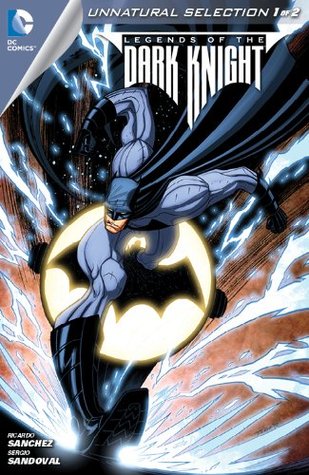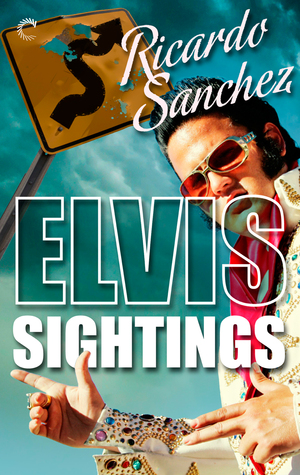She eloped with Bigfoot. Or maybe Bigfoot kidnapped her. Either way, I've been hired to uncover the truth behind Cindy Funk's disappearance. Me? I'm Floyd, and I'm a PI living my life as Elvis would have wanted. Not just in sequined jumpsuits. With character.
Description:
Description:
Read excerpt here.
She eloped with Bigfoot. Or maybe Bigfoot kidnapped her. Either way, I've been hired to uncover the truth behind Cindy Funk's disappearance. Me? I'm Floyd, and I'm a PI living my life as Elvis would have wanted. Not just in sequined jumpsuits. With character.
Cindy's trail leads me to River City, Oregon—aka the Mythical Creature Capital of the World—where I catch Case #2. This one from an eccentric billionaire who's lost a priceless piece of "art." Enter one dead body and I end up deputized to solve Case #3, tracking down a man-eating mountain lion. Or maybe it's a chupacabra. Or just an ordinary murderer. Hard to say.
I've handled my fair share of crazy, but River City's secrets have me spooked. With an influx of tourists arriving for the town's annual Elvis tribute contest—what are the chances?—I've got to save the girl, solve the rich guy's problem and leash that chupacabra before a second body is discovered. It might just be mine.
MB's INTERVIEW
In case your readers haven't seen the jacket copy, Floyd is two things. A P.I. and a Lifestyle Elvis - he lives his life the way he thinks Elvis would want him to. There are others that live by the credo of "What would Elvis do?", but part of Floyd's approach is to wear sequined jumpsuits. Because they are very comfortable and you can have them made with lots of pockets. And they look good. In the first book, Elvis Sightings, his dying mentor sends him to Kresge, Wyoming to find a man he believes is really Elvis Presley, alive and well. But when he gets there he uncovers a cold war era Soviet plot, a bunch of "dead" celebrities and no Elvis. He also meets a number of characters who make their way into book 2, Bigfoot Blues. In the sequel, Floyd is knee deep in a romance and at that critical juncture where you decide it's a big deal, or you pull out. But he's also got a new case. A distraught father believes his daughter has eloped with Bigfoot and wants Floyd to find her. Goliath, one of the characters from the first book, goes along on the adventure to River City, Oregon, a town hosting the regional King of Elvis Impersonator finals and stalked by a man eating mountain lion. Or maybe a chupacabra.
Floyd's credibility as a P.I. is actually a question I took head on in the first book because, lets be honest, a sequined jumpsuit wearing PI is sort of absurd. But at the same time, it is also sort of liberating. For one thing, nobody, but nobody, is going to suspect someone they think is an Elvis impersonator of being a private detective. Never. It's like never expecting the Spanish Inquisition. When he's questioning someone, people have a harder time taking him seriously, and tend to say things they would be more guarded about around the typical P.I. It does make it harder for him to surreptitiously tail someone, but pretty much any other aspect of the work is either made easier by his attire or is unaffected by it. And then there's the kinds of cases Floyd gets – the weird ones. Whether that's because of the jumpsuits is up for debate.
 Mystery and humor are old, but complicated friends. What did you do in Bigfoot Blues to satisfy the demands of such a relationship?
Mystery and humor are old, but complicated friends. What did you do in Bigfoot Blues to satisfy the demands of such a relationship?
Some of my favorite mysteries are funny ones. Janet Evanovich probably does it better than anyone. Mystery comedy is often derived directly from the protagonist – she or he is a funny person, either overtly or inadvertantly. With Floyd and Bigfoot Blues, the humor is almost always at Floyd's expense. He's the straight man and the clients, events and people around him are all there to confound him when all he really wants to do is solve what should be a simple case. Floyd himself is never trying to be funny. In fact, he's often frustrated by what is ultimately driving the humor.
How different is to write a comic book than a full mystery novel?
It's not a perfect analogy, but it's kind of like baking. You cook a cake and a turkey in the oven, but the process and result is pretty radically different. The part that is the same is the planning. Before I start telling the story, I have to figure out the plot, the characters and most importantly, the ending. But once I do start writing, the differences really kick in. With a novel, it is a largely solitary process until you hand a draft over to an editor. It's just you and a word processor and a LOT of typing.
There's some of that with comics – you still have to do the writing, but very few of the words you write are ever seen by a reader. I'm mainly writing for the artist. I start by describing the page. How many panels are on it? What's the overall action? Then I go panel by panel, telling the artist exactly what is happening. Is the character smiling, frowning, or is their face hidden? What is the state of the action? If it's in an office, what's on the wall? What can you see out the window? So I'm writing things up like I might if I was writing a novel, but I don't care too much about the quality of the prose. The most important thing is the clarity of action. Then once the artist starts working, the story I wrote takes on a completely new life as the artist interprets it and ands her or his own spin on it. Comic books are much more collaborative throughout the process. But both are a lot of fun.
What kind of character do you prefer: an anti-hero or genuine hero? Why?
I've written both, but now that you've asked, all of my original characters are pretty close to being genuine heroes. I'm kind of surprised this never occurred to me before. I do love anti-heroes, but the thing I like about true heroes is that it is so much more fun to mess with them. Anti-heroes can get away with almost any kind of behavior as long as they have a few redeeming qualities. While heroes have to play by rules and breaking them has consequences. They also have a clear sense of purpose which makes creating obstacles a lot more fun. Floyd definitely falls into the genuine hero category. He wants to be good and do the right thing, even if it comes as a personal cost to him (usually in the way of someone beating him up.)
But I also just admire heroes. They can absolutely make us feel better about ourselves, other people and the world generally. The best Superman stories can do that, for example. I wasn't going for that in Bigfoot Blues though. He's a hero with a small "h."
But I also just admire heroes. They can absolutely make us feel better about ourselves, other people and the world generally. The best Superman stories can do that, for example. I wasn't going for that in Bigfoot Blues though. He's a hero with a small "h."
Has Floyd any of the Dark Night’s features? Why?
You know what, he does? Several in fact. I've already talked about Floyd's outfit a bit. Both Batman and Floyd wear costumes (some would argue that Bruce Wayne is the costume and Batman is the real person, but that's a whole other post…) and they serve a similar purpose - it gives them confidence to do what they need to do. The stakes are quite different, but the end result is the same. They couldn't be the men they are without the suit. They both have a strong sense of morality. Floyd's comes from "What would Elvis do?" while Batman's has more to do with protecting the innocent. You asked about anti-heroes. A lot of people think that because Batman is a dark and brooding here, he's actually an anti-hero, but it's all an an act. He has such a strict moral code that he behaves like a genuine hero. Sorry, comic book geek coming out. There's one other thing that Batman and Floyd have in common. They both have smaller acrobatic partners who wear colorful outfits. Batman has Robin, and Floyd has Goliath, a little person who comes from a family of circus brawlers who made money challenging rubes in the ring.
Ricardo Sanchez is a writer, toy buff, and lifelong comic book fan.
Elvis Sightings, the first novel in his Elvis Sightings Mysteries series, was released in September , 2014. Bigfoot Blues, the follow up, was released in May, 2015.
Ricardo has written several books for DC Comics, including Batman: Legends of the Dark Knight, Teen Titans Go! and Resident Evil among many others. His original project, A Hero’s Death, was a successful Kickstarter released in May, 2015.
In addition to writing, Ricardo is an Emmy award winning video and animation producer. When he’s not writing, Ricardo maintains a vintage toy blog, drives 70's muscle cars, and shops year round for Halloween decorations for his home in California.



No comments:
Post a Comment